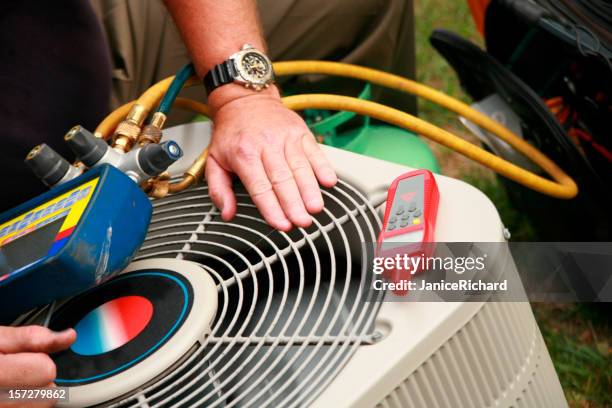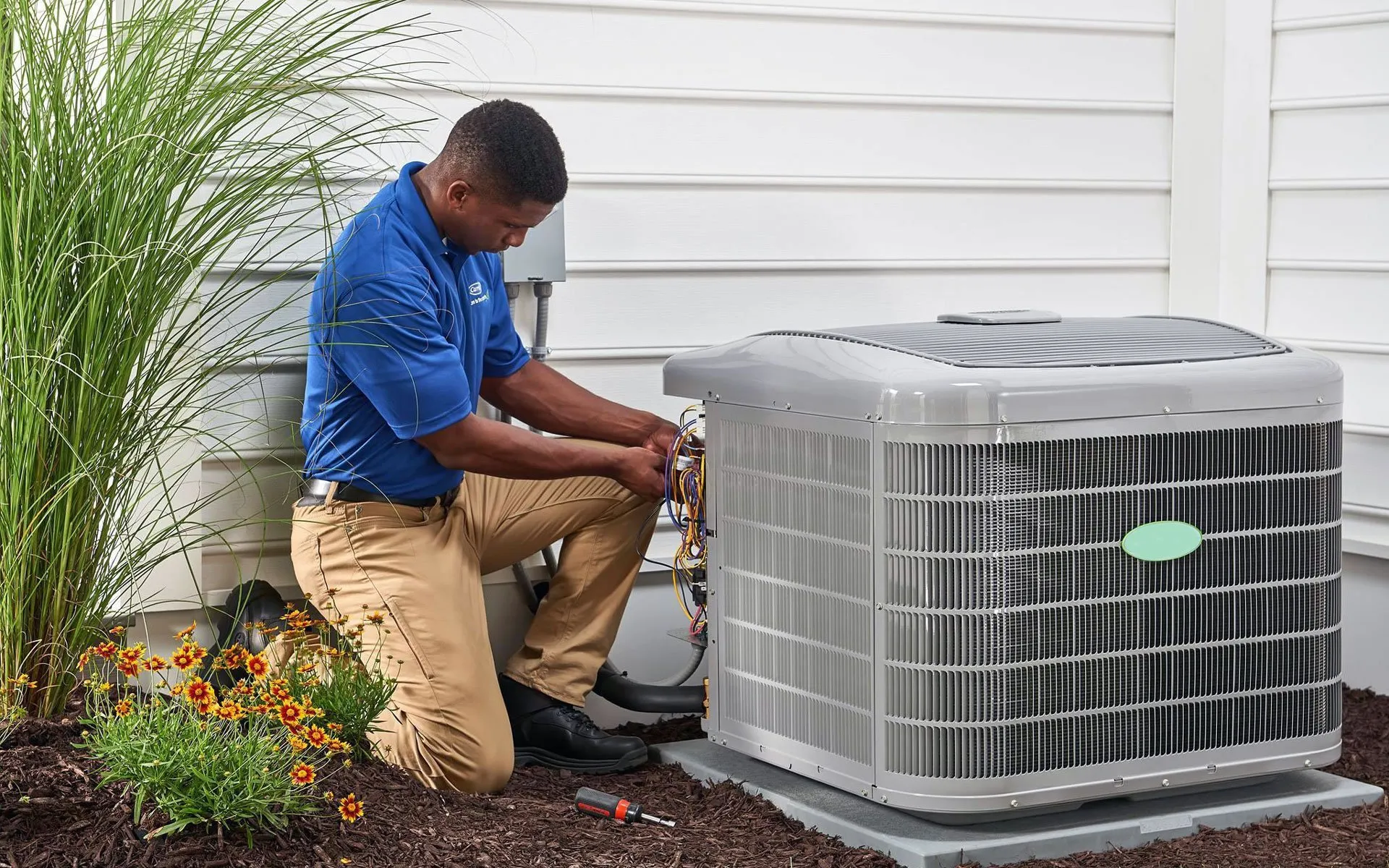Picking In Between a Warmth Pump and Furnace: Key Considerations for Your HVAC Demands
When assessing home heating alternatives for cooling and heating needs, the choice in between a heatpump and a heater can be complicated. Each system uses distinct benefits tailored to specific environments and power effectiveness goals. Recognizing these distinctions is crucial for making an enlightened option. Secret factors such as setup costs and ecological impact further make complex the choice process. Which choice really aligns with one's convenience and sustainability preferences? The adhering to sections will certainly check out these considerations carefully.
Comprehending Heat Pumps: How They Function and Their Advantages
While lots of homeowners take into consideration different home heating choices, recognizing just how warm pumps function and their advantages can greatly influence their choice. Warm pumps operate by transferring warm instead of generating it. In the winter, they remove heat from the outside air or ground and move it inside, while in the summer season, they reverse this procedure, cooling the home by eliminating warm outside. This twin functionality makes them functional for year-round climate control.One of the main advantages of heatpump is their energy performance. They make use of substantially much less electrical power contrasted to standard furnace, possibly causing lower energy bills (furnace replacement). Additionally, heatpump have a smaller carbon impact, making them an eco-friendly choice. They also require less maintenance than conventional systems, adding to long-term cost savings. Overall, understanding the mechanics and advantages of heatpump can help homeowners make informed choices regarding their home heating and cooling down demands
Exploring Furnaces: Types, Procedure, and Benefits
Heating systems are available in various types, consisting of gas, electrical, and oil models, each with distinct operational mechanisms. Comprehending these differences is vital, as they impact efficiency and heating performance. Furthermore, heating systems provide various advantages, such as constant warm output and integrity in chillier climates.
Sorts of Furnaces
Furnace can differ significantly in design and procedure, with furnaces being a prominent option among home owners. There are a number of types of heating systems, each utilizing different fuel resources and innovations. Gas furnaces prevail, leveraging all-natural gas to produce warmth effectively. Electric furnaces, on the various other hand, utilize electrical resistance to generate heat, usually preferred for their simple installation. Oil furnaces, while much less usual, work in areas with restricted gas gain access to (heat pump service). Additionally, condensing heaters maximize energy performance by recycling and capturing exhaust gases. Each kind operates through a system of warmth exchangers and ductwork to disperse warm air throughout a home. Comprehending the distinctions between these heater types is essential for notified HVAC decisions
Advantages of Furnaces
For property owners looking for reputable heat throughout cold months, the advantages of heating systems are significant. Furnaces supply regular heating, making sure also temperatures throughout the home. They are particularly efficient in severe cool, frequently exceeding heat pumps in freezing conditions. Different kinds, including gas, electric, and oil furnaces, use adaptability to meet diverse needs and preferences.Furnaces additionally tend to have lower preliminary setup prices compared to heatpump, making them a much more obtainable alternative for many. Their robust layout adds to a much longer life-span, with several devices lasting over 15 years with correct upkeep. In addition, contemporary heating systems are often equipped with innovative modern technology for improved efficiency, which can bring about lowered power costs. Generally, furnaces continue to be a reputable selection for efficient home heating.

Energy Performance: Contrasting Warm Pumps and Furnaces
When contrasting energy effectiveness in between warm pumps and heaters, the Seasonal Energy Effectiveness Ratio (SEER) plays a necessary function in figuring out performance. Furthermore, an operational price analysis exposes the long-lasting economic implications of each system. Comprehending these aspects can guide house owners in making educated choices about their home heating options.
Seasonal Power Performance Ratio
Power performance plays an essential function in the decision-making process in between warm pumps and heaters, specifically when considering the Seasonal Energy Efficiency Ratio (SEER) This statistics actions the cooling performance of heatpump over an entire cooling season, supplying a standardized method to assess performance. Greater SEER rankings show better power performance, converting to lower power consumption and lowered utility costs. On the other hand, heaters are generally evaluated utilizing the Annual Fuel Use Effectiveness (AFUE) ranking, which reflects home heating effectiveness. When contrasting these 2 systems, house owners need to prioritize SEER ratings for heatpump, as they straight effect total power savings and ecological sustainability. A comprehensive understanding of SEER can notably affect the lasting satisfaction and cost-effectiveness of the chosen cooling and heating option.
Operational Cost Evaluation
Comprehending the operational costs related to heatpump and heating systems is important for house owners examining their options. Warm pumps generally offer greater power effectiveness, transforming electrical power into warmth with minimal waste. This causes lower month-to-month utility expenses, particularly in moderate climates. Alternatively, traditional heaters, especially gas versions, might have reduced ahead visit homepage of time expenses but additional resources can sustain higher operational costs over time because of fuel prices and effectiveness ratings.Moreover, heatpump can function as both home heating and cooling systems, potentially minimizing the need for different a/c units. While first investments for heatpump may be higher, their long-lasting financial savings in energy effectiveness can make them an extra affordable selection for many homes. Careful evaluation of regional energy rates is vital to establish the most effective option.
Installation Prices: What to Expect for every Furnace
Installation expenses for home heating systems can differ substantially between warm pumps and heating systems, affecting house owners' choices. Heatpump typically have greater upfront installation prices, typically ranging from $3,500 to $8,000, depending upon the system dimension and complexity of installation. This consists of the exterior unit, indoor handling system, and required ductwork modifications. On the other hand, heaters often tend to have reduced preliminary expenses, averaging between $2,500 and $6,000, which can be appealing for budget-conscious homeowners. Nonetheless, installment expenditures can boost if considerable ductwork is required.Moreover, the selection of gas type for heaters-- all-natural gas, propane, or electric-- can also impact installation prices. While heatpump supply power effectiveness, their initial investment might prevent some purchasers. Eventually, examining installation prices together with long-lasting financial savings and effectiveness will assist homeowners in making educated decisions about their furnace.
Climate Factors To Consider: Which System Executes Much Better in Your Location
Exactly how do environment conditions influence the effectiveness of heating systems? The efficiency of heatpump and furnaces can differ considerably relying on the neighborhood environment. In modest environments, heat pumps stand out by efficiently transferring heat from the outdoors air, making them an energy-saving alternative. Nevertheless, their efficiency decreases in incredibly cool temperature levels, where they might have a hard time to draw out adequate heat. On the other hand, furnaces, specifically gas designs, offer reliable and regular heat regardless of outdoor problems, making them preferable in colder regions.In areas that experience milder winters months, heatpump can operate efficiently year-round, providing both heating and cooling. In comparison, areas with rough wintertimes commonly gain from the robustness of heating systems. Inevitably, understanding the regional climate is essential when making a decision in between a heatpump and a furnace, as it directly affects their functional effectiveness and general efficiency.
Maintenance Demands: Long-Term Look After Heat Pumps vs. Furnaces
While both heat pumps and furnaces call for normal upkeep to guarantee peak performance, their specific requirements and treatment routines vary significantly. Heaters typically require much less regular attention, with yearly assessments sufficing to check for gas leaks, tidy filters, and assess general functionality. Their simpler design frequently allows for uncomplicated repairs.In contrast, heatpump demand semiannual upkeep due to their dual role in home heating and air conditioning. This consists next of cleaning coils, examining refrigerant levels, and making sure that both the exterior and indoor systems work at their finest. In addition, heat pump upkeep commonly entails even more complex parts, making specialist servicing essential.Neglecting maintenance can cause decreased efficiency and enhanced power prices for both systems. Ultimately, property owners must think about these long-lasting treatment demands when choosing in between a heat pump and a furnace, as aggressive maintenance can expand the life-span and efficiency of either system substantially.
Environmental Impact: Choosing a Sustainable Home Heating Alternative
The environmental effect of heater is an important assessment for home owners seeking sustainable options. Warmth pumps are normally more energy-efficient than typical heaters, as they transfer heat as opposed to create it, substantially lowering carbon discharges. By making use of eco-friendly power resources, such as air-source or geothermal heat pumps, home owners can even more reduce their environmental footprint.On the various other hand, gas heating systems emit greenhouse gases and contribute to air pollution, though they commonly provide greater warm result. Nonetheless, developments in innovation have brought about the development of high-efficiency heating systems that reduce emissions.Ultimately, choosing a furnace entails evaluating effectiveness against ecological impact. Home owners are urged to show on regional energy sources and motivations for eco-friendly systems, making certain a choice that aligns with both personal comfort and environmental duty. The decision affects not just prompt convenience yet also long-term sustainability and ecological health.
Frequently Asked Concerns
Just How Lengthy Do Heat Pumps and Furnaces Typically Last?
The life-span of heat pumps usually ranges from 15 to 20 years, while heaters can last between 15 to 30 years. Routine upkeep significantly impacts their longevity and effectiveness in providing heating services.
Can I Utilize a Heatpump in Exceptionally Cold Climates?
Warm pumps can operate in very chilly climates, yet their performance diminishes as temperature levels decline. In such conditions, additional heating resources may be required to preserve comfortable indoor temperature levels and assure peak performance.

What Is the Noise Level of Warmth Pumps Versus Furnaces?
The noise levels of heatpump and furnaces differ substantially. Usually, warmth pumps operate more quietly than traditional furnaces, making them preferable for those conscious sound, while heating systems might create louder operational noises during home heating cycles.
Are Warm Pumps Suitable for Both Cooling And Heating?
Heat pumps are certainly suitable for both cooling and heating (heat pump service). They function by transferring warm, providing effective temperature control year-round, making them a versatile option for house owners looking for an all-in-one heating and cooling solution
What Dimension Home Heating System Do I Need for My Home?
Determining the ideal size heating system for a home needs reviewing factors such as square footage, insulation quality, regional environment, and the home's layout. Consulting an expert can guarantee a precise assessment and optimal comfort. Warm pumps generally use higher power performance, transforming electrical energy into heat with very little waste. In modest climates, warm pumps succeed by successfully moving heat from the outside air, making them an energy-saving option. Alternatively, furnaces, especially gas models, supply reliable and consistent heat no matter of outdoor conditions, making them more suitable in colder regions.In locations that experience milder winters, warmth pumps can run properly year-round, giving both home heating and cooling. Warm pumps are normally a lot more energy-efficient than typical heating systems, as they move heat rather than create it, considerably decreasing carbon discharges. By using eco-friendly energy resources, such as air-source or geothermal warmth pumps, house owners can additionally lessen their ecological footprint.On the other hand, natural gas heaters produce greenhouse gases and add to air contamination, though they frequently provide higher heat output.
Comments on “Top Reasons to Schedule heat pump replacement ooltewah tn”